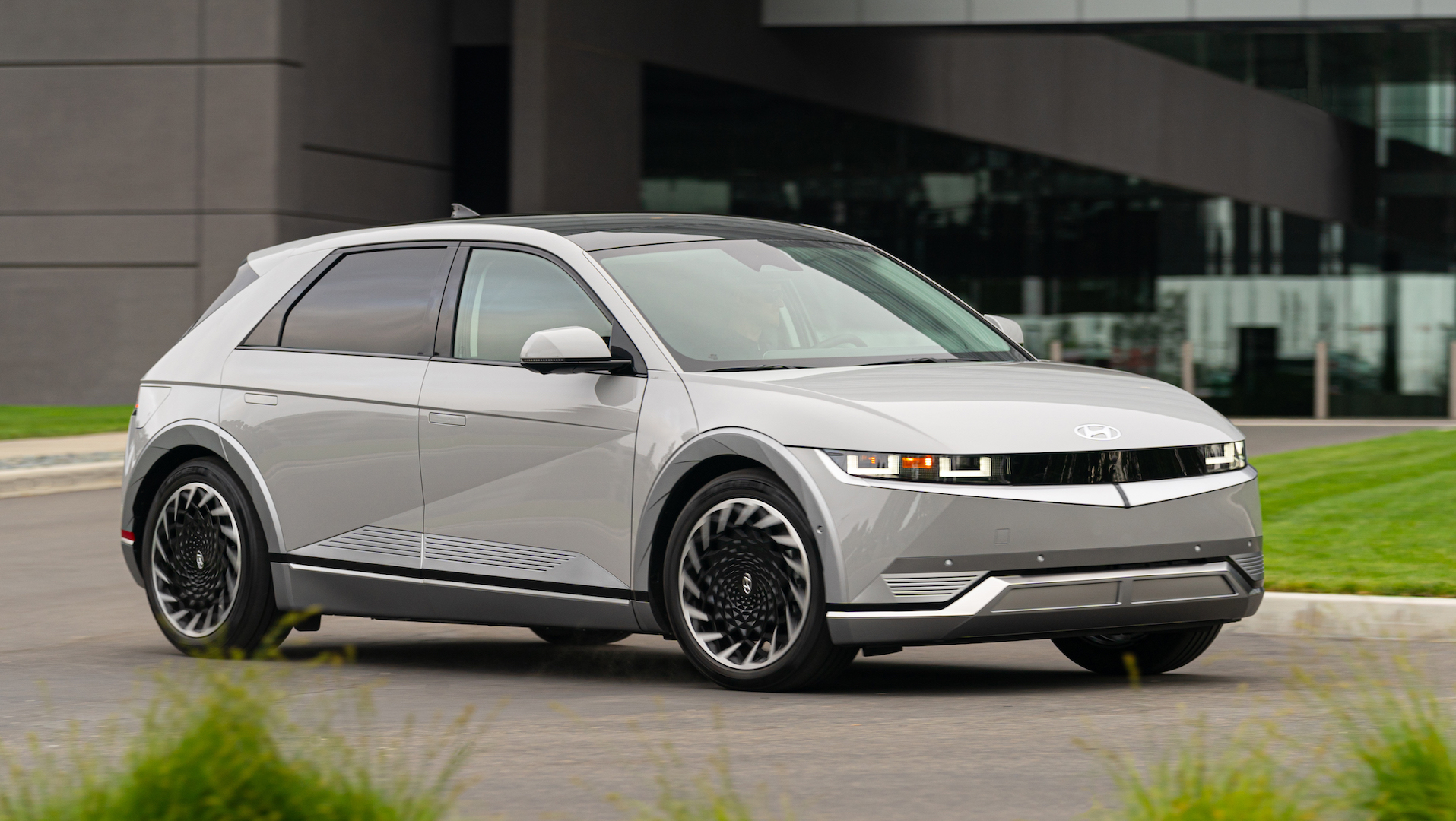

Just as its sister company did with the Kia EV6, Hyundai is officially revealing the Ioniq 5 electric crossover for the second time now; this time, with official U.S.-market specs. When the Ioniq 5 rolls out in 2022, it’ll come with a 77.4-kilowatt-hour battery and the option of single-motor rear-wheel drive or dual-motor all-wheel drive. In rear-drive guise, the car will target 300 miles of range and produce 225 horsepower and 258 pound-feet of torque. Add a front-axle motor and the all-wheel-drive SE and SEL versions will apparently travel 269 miles per charge.
A top-of-the-line Limited AWD model, however, puts out 320 hp and 446 pound-feet of torque, leading to a zero to 60 mph sprint lasting “less than five seconds.” Naturally, this is the least efficient Ioniq 5 of the bunch, targeting a range of 244 miles. All variants top out at 115 mph and can tow up to 1,500 pounds.

As for how the Ioniq 5 will recoup its energy after all of those sub-five-second runs to 60, ultra-fast 800-volt multi-charging can get it from 10 to 80 percent charge in 18 minutes. If you’re pressed for time, 68 miles of range can be gained by plugging in for just five minutes; remember, though, that such chargers aren’t available everywhere. Using more common Level 2 chargers, Hyundai says the Ioniq 5 will fully juice up in precisely six hours and 43 minutes. For the first two years of ownership, Ioniq 5 buyers will be entitled to unlimited, 30-minute charging sessions on Electrify America public chargers.
Like the Kia EV6 and the electrified Genesis G80 or the Ford F-150 Lightning, the Hyundai Ioniq 5 will double as a mobile vehicle-to-load generator, letting owners power an on-the-road workspace, a “tailgate” party (a hatchback party doesn’t sound nearly as fun), or even top up another EV with 1,900 watts of juice.


It may look like a compact car akin to the Honda Civic or Toyota Corolla hatchbacks at first glance but the Ioniq 5 is deceptively large. Hyundai’s new EV actually boasts the longest wheelbase of any U.S.-market Hyundai product. The company notes that it also offers more overall passenger volume than the Ford Mustang Mach-E and Volkswagen ID.4, coming in at 106.5 cubic feet versus the Ford’s 101.1 and the VW’s 99.9 cubes.
On top of being spacious, the Hyundai EV’s interior looks like it’ll be quite serene as well. Pull on one of the car’s flush door handles and climb inside and you’ll be greeted by a lounge-like cabin, a Universal Island center console that slides back and forth 5.5 inches, sustainable materials, a pair of wide 12-inch screens, and hidden ambient lighting. There’s even magnetic board to the left of the digital instrument screen intended as a place to put pictures, notes, or, if you really want, childrens’ drawings, just like you would on a refrigerator.

As for how one will purchase an Ioniq 5, Hyundai says it is working on changing things up on that front too. Ioniq products will, in the future, be offered on a subscription basis, with a monthly payment covering the car, insurance, and maintenance. It’s not a new idea by any means but one that’s proven difficult to get off of the ground for many manufacturers. In any case, the Ioniq 5 won’t be the only car available on Hyundai’s future subscription service because an electric mid-size sedan called the Ioniq 6 and a big electric SUV called the Ioniq 7 will be joining it soon.

Got a tip or question for the author about the Hyundai Ioniq 5? You can reach them here: chris.tsui@thedrive.com